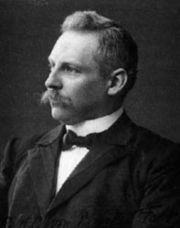 W
WJoseph Ascher was a Dutch-Jewish composer and pianist who was active in London and Paris for most of his life.
 W
WJan Willem Frans Brandts Buijs was a Dutch-Austrian composer who came from a long line of Dutch organists and composers of protestant church music.
 W
WGerardus Hubertus Galenus von Brucken Fock was a nineteenth-century classical Dutch pianist who gave up his career as a performer to compose and paint.
 W
WAlphonsus Johannes Maria Diepenbrock was a Dutch composer, essayist and classicist.
 W
WCornelis 'Kees' Dopper was a Dutch composer, conductor and teacher.
 W
WJan Pieter Hendrik van Gilse was a Dutch composer and conductor. Among his works are five symphonies and the Dutch-language opera Thijl.
 W
WRichard Hol was a Dutch composer and conductor, based for most of his career at Utrecht. His conservative music showed the influence of Ludwig van Beethoven, Felix Mendelssohn, and Robert Schumann and the Leipzig school, though as a conductor he offered Dutch audiences the more revolutionary music of Hector Berlioz and Richard Wagner.
 W
WJoseph Hollman, was a Dutch cellist.
 W
WSamuel de Lange Jr. was a Dutch composer, music conservatory director, organist, pianist, conductor and music teacher. His father, Samuel de Lange Sr., and his brother Daniel, one year his junior, were also well-known musicians.
 W
WEdward Potjes was a Dutch composer and piano virtuoso.
 W
WEdouard Silas who was born in Amsterdam and died in London, was a Dutch composer and organist.
 W
WJohannes Joseph Hermann Verhulst was a Dutch composer and conductor. As a composer mainly of songs and as administrator of Dutch musical life, his influence during his lifetime was considerable.
 W
WJohan Wagenaar was a Dutch composer and organist.
 W
WJohann Wilhelm Wilms was a Dutch-German composer, best known for setting the poem Wien Neêrlands Bloed to music, which served as the Dutch national anthem from 1815 to 1932.
 W
WBernard Zweers was a Dutch composer and music teacher.